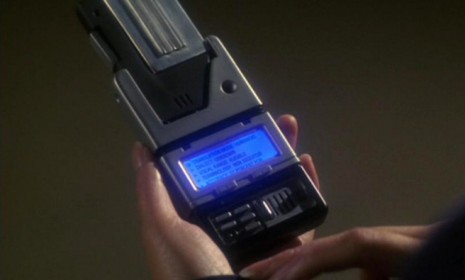The translator that converts your voice into 26 different languages
Microsoft is developing a revolutionary new kind of communications software capable of making you sound like a worldly polyglot... instantly

A Star Trek-style universal translator may sound like the stuff of science fiction, but Microsoft is developing a new type of software that can convert your words into another language while preserving the sound of your voice. Here, a quick look at the futuristic new technology that could revolutionize the way we travel:
How does it work?
The prototype is part of Microsoft's Speech Platform, which can translate text to speech in 26 languages. The system requires an hour of training to create a model for your voice, taking into account accent, timbre, and intonation. "This model is then mushed into Microsoft's standard text-to-speech model for the target translation language," says Sebastian Anthony at ExtremeTech. For example: Microsoft's model in Spanish will replace its default "S" sound with the way you pronounce "S." This is done for every individual sound, or phoneme. Then you speak into the device in your native tongue, and it plays back what you said in another language, while sounding like you.
The Week
Escape your echo chamber. Get the facts behind the news, plus analysis from multiple perspectives.

Sign up for The Week's Free Newsletters
From our morning news briefing to a weekly Good News Newsletter, get the best of The Week delivered directly to your inbox.
From our morning news briefing to a weekly Good News Newsletter, get the best of The Week delivered directly to your inbox.
Does the artificial voice sound authentic?
The creator of the software, Frank Soong, gave a live demonstration at a conference earlier this year. (Listen to it here at around the 17 minute mark.) In the soundbite, he had Microsoft's chief research officer, Rick Rashid, say a long sentence in English, and the software translated his words into Spanish, Italian, and Mandarin. You can hear how the sound of his voice becomes digitized, says Anthony, "but overall it's remarkable how the three translations still sound just like Rashid."
How useful will this really be in daily life?
One day this technology could make it onto smartphones (Windows 8, anyone?), making it easier for travelers to cope in foreign countries. "The number of times I've massacred another language in an attempt to simply get a pint a beer makes me shudder," says Sam Gibbs at Gizmodo U.K. "Turn this into a phone app and you'll have an instant communicator." The software could also be huge for businesses, says Eileen Brown at ZDNet, which "could have the opportunity to break into new markets around the globe without the overhead of human based translation services."
A free daily email with the biggest news stories of the day – and the best features from TheWeek.com
Sources: DVice, ExtremeTech, Gizmodo U.K., ZDNet


